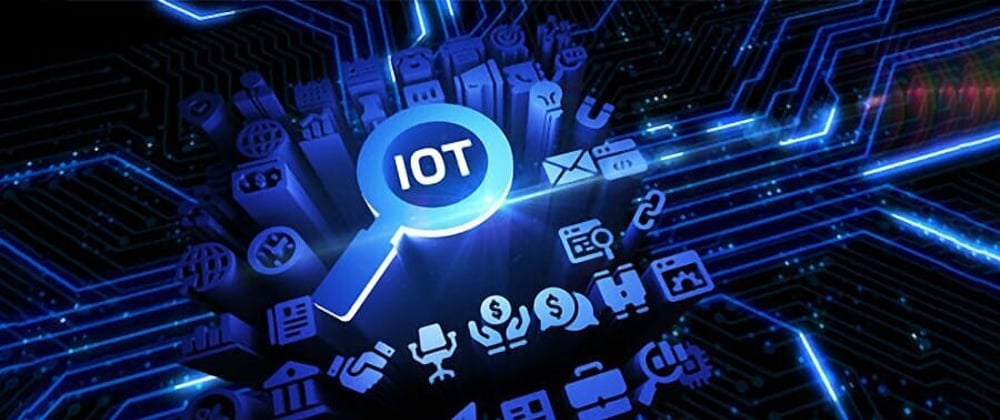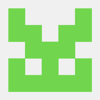Self-driving cars, wearable devices, connected appliances, smart home security systems, and even smart tennis rackets are becoming part of our everyday life. If you happen to meet these smart devices in your or your neighbor’s life, welcome to the world of IoT – a new era of smart technologies. In this article, we will talk about IoT trends to expect in 2021/2022 with a focus on fundamentals.
Security Concerns
Are IoT devices secure? After all, you trust part of your personal life to the new technology. Are they safe? Are they secure?
Today, in 2021, we can say that security is a challenge for the IoT market. According to a study published in July 2020, 51% of IT teams were unaware of what types of smart objects were active in their network. Isn't that scary?
Add to this data that over 4,000 ransomware attacks take place around the world daily.
What consequences will it have for the future of IoT? Will the market stagnate due to security concerns?
In fact, the opposite is true. The market will focus on apps and solutions that ensure the highest security of IoT devices. Today companies focus on growing IoT security concerns offering Code Protection, Whitebox, and App Shield to protect these high-tech devices. For example, Security Today offers creating a wireless network dedicated for IoT.
- Key takeaway: The market for IoT technology will focus on improved security.
IoT in the Manufacturing Sector
The COVID-19 pandemic affected the IoT in the manufacturing sector. The manufacturing slowdown in China has affected the industries in more than 10 countries. It goes without saying that the factory shutdown has negatively affected the production of key products.
It is expected that the manufacturing slowdown will persist for several months having its own consequences for the IoT sector. Hence, the COVID-19 outbreak has reduced the growth of the IoT industry in the manufacturing sector. BBC News refers to Bloomberg Economics saying that at one of the weeks of 2020, amid the Covid-19, Chinese factories were operating at 60% or 70% of their capacity. Wharton University experts say “doubling the number of vaccine doses administered daily to 3 million would create more than 2 million jobs”.
- Key takeaway: Once the Covid-19 pandemic is over, we may witness a boom in IoT in manufacturing as a lot of factories will try to compensate for the loss.
Big Data, Analytics, and Machine Learning
Let's talk about big data. Today data streams are now being integrated with machine learning and AI. No wonder so many vendors are concerned about how to build a machine learning app.
What does this mean in real life? This means that human intervention is taken to a minimum letting the computer system learn and adapt without following explicit instructions. This also means that the computers analyze and draw inferences from data where the human intervention is at a minimum.
What consequences will this have? This first consequence will be speed. Integrated analytics help IoT solutions to be much faster when it comes to data analysis. IoT analytics will also take a cloud form being applied in IoT networks. As Cloudcone puts it, cloud computing is the future of IoT.
- Key takeaway: Expect to see Machine Learning and Artificial Intelligence in IoT data analysis through IoT networks and cloud-based applications.
IoT and Healthcare Industry
Why is IoT in healthcare a big deal?
It's not a secret that healthcare services are costly. An average person pays for years of insurance and even then has to pay out of pocket. With the aging of the global population and a number of chronic diseases on the rise, this has become an issue.
Well, IoT has come to the rescue. It makes the healthcare services accessible, better and easier on the pocket. IoT can remarkably reduce healthcare costs and will radically change hospitals and medicine.
Today a lot of patient monitoring is done through connected devices allowing physicians to monitor less serious cases at home. What does this mean in practice? It means fewer hospital admissions and a reduction in unnecessary costs. Automation of data collection is also a factor that will reduce healthcare costs. In short, IoT is there for the healthcare sector and is going to expand.
- Key Takeaway: IoT can help healthcare organizations boost revenue and save on costs.
Improved Workforce Management
Let's talk about beacons and how they can improve workforce management. Put simply, beacons are small transmitters that send signals to nearby devices. Doing that, they make location-based searching and interaction easier and more accurate.
How can that improve workforce management? E.g., beacons can push daily task lists to the employees or remind them of their appointments.
Employees can also figure out the exact location of their colleagues. This is particularly useful in large buildings with a number of blocks. For example, businesses can capture the check-in and check-out time of employees based on beacon data.
Global Market Insights estimated that the beacon technology market is set to surpass $25 billion by 2024.
- Key Takeaway: Workforce management will be empowered by new technology, like beacons.
IoT will Boost the Establishment of Smart Cities
Smart city tech spending can reach $158 billion by 2022 (Statista, 2020). Why is this figure so big? Today some cities are using IoT in the utility market, parking, and traffic lights.
Not only will smart cities make the life of ordinary people more comfortable, but also they will improve the social, environmental, and financial aspects of urban living. Here is a list of cities that are leading the way.
- Singapore
- Dubai
- Oslo
- Copenhagen
- Boston
- Amsterdam
- New York
London.
Key Takeaway: Expect to see a rise of smart cities in areas like parking sensors, automated waste collection, smart street lights, utilities, and more.
Cloud-based software vendors vs. IoT platform developers
We expect to see cloud software vendors compete with IoT platform developers. But we also expect to see partnerships developed between the two. One thing is clear that new applications in the IoT sector are going to proliferate with interesting and often unexpected solutions.
- Key Takeaway: New apps in the IoT sector will be built.
IoT and Customer Service
You need to know about Customer relationship management (CRM) when we talk about IoT in the customer service sector. CRM is a technology for managing customer relations. It is the largest and fastest-growing enterprise application software category with worldwide spending forecasted to be USD 114.4 billion by the year 2027.
How does it work? With CRM technology you can see everything in a single dashboard, like a customer's previous history with your shop, the order status, and even social media likes and dislikes or what they are saying and sharing with your competitors. Is it clear how powerful CRM is for customer management? And this is possible with IoT technology. But not only that.
IoT can be used to build smart stores that can speed up payments and personalize shopping experiences.
- Key Takeaway: IoT will be extensively used in customer management, like with CRM technology or smart stores.

IoT and Smart Stores
Since we mentioned smart stores, let us see what they are and how they can help businesses. To know about smart stores, you need to learn about RFID. RFID or “radio-frequency identification” is a technology that helps to capture digital data via radio waves. It automatically identifies objects, collects data about them, and enters those data directly into computer systems with little or no human intervention. For example, RFID can record how customers spend their time in shops by tracking their movement and product interaction with the help of smart lighting.
Having information on such data, shop owners can make adjustments in their customer service, e.g. make changes in shelves or inventory.
- Key Takeaway: IoT is a new era of data collection and transmission and can help build smart shops.
Conclusion
Contrary to what we witness today, the IoT market is going to be diverse. It's not giant companies that will control the market but lots of small businesses with tech contributors. We will witness the development of thousands and hundreds of thousands of IoT applications developed by technicians, developers, and other like-minded individuals.
How can this impact you as a business? Maybe you are the one who is thinking about how to develop a successful mobile app at a reasonable price. If this question rises, you hit the point.
But not only that. IoT gives plenty of space for creativity. Soon it will become an established business technology and those that will be prepared to brace for IoT's impact will be the ones that will reap the fruits. You should get ready for IoT’s pending explosion.








Top comments (0)